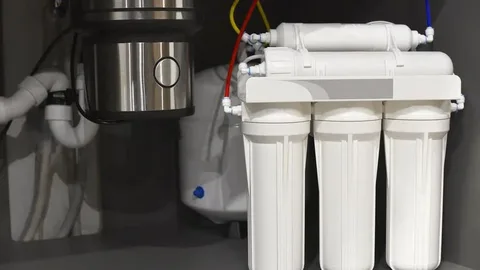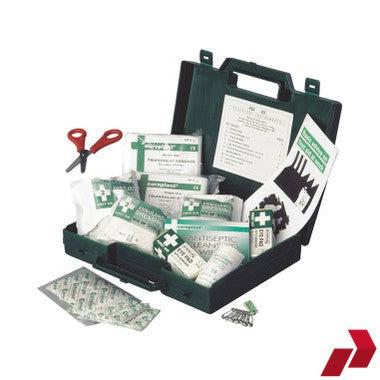Selecting a Water Filter For Home use is essential for ensuring access to clean and safe drinking water. The market offers a variety of water filtration systems, each designed to tackle different impurities and cater to specific household needs. Factors such as the type of contaminants in your water, the size of your household, and any particular health concerns must be considered when choosing the right filter.
Additionally, understanding the costs of each system, including initial investment and ongoing maintenance, is crucial for making an informed decision. This guide will walk you through evaluating your options and selecting a water filter that meets your unique requirements.
Comprehending Various Types of Water Filters
Water filters come in several varieties, each with distinct features and advantages. Activated Carbon Filters excel in removing chlorine, sediment, and volatile organic compounds, thus enhancing taste and odour. Reverse Osmosis Systems utilise a semi-permeable membrane to eliminate impurities such as heavy metals and dissolved salts; they are highly effective but might need professional installation.
UV Purifiers employ ultraviolet light to destroy bacteria and viruses, making them suitable for tackling biological contaminants, although they do not remove chemicals. Distillation Units operate by heating water to create steam, leaving impurities behind, and then condensing the steam back into water. This method is thorough but can be slow and energy-consuming. Each type of filter addresses different contaminants and has benefits and drawbacks.
Evaluating Your Water Quality
Testing your water quality is essential to identify contaminants and select the most suitable filter. Common impurities include bacteria, viruses, heavy metals, chlorine, and pesticides. The contamination levels vary depending on your location and water source.
To accurately assess your water quality, you can use readily available and easy-to-use home testing kits. These kits typically test for a range of contaminants and provide quick results. Consider hiring a professional service offering detailed insights into your water’s composition for a more comprehensive analysis. Understanding the specific impurities in your water will guide you in choosing a filter that effectively addresses your needs.
Identifying Your Household Requirements
Understanding your household’s needs is vital for selecting the right water filter. Consider the size of your family and the typical water usage to ensure you choose a system that can handle the demand. Larger households or those with high water consumption will require filters with greater capacity to maintain efficiency and supply.
If anyone in your household has particular health concerns, such as allergies or sensitivities to certain chemicals, choosing a filter designed to address these issues is crucial. Filters that remove specific contaminants like lead, chlorine, or bacteria can significantly improve water quality for those with sensitivities.
Finally, consider the filter’s practicality in terms of installation and maintenance. Some systems are more user-friendly and require less frequent upkeep, making them suitable for busy households. These factors will help you make an informed decision tailored to your family’s needs.
Selecting a Water Purifier for Home: Balancing Costs and Benefits
When selecting a Water Purifier for Home, balancing initial and ongoing expenses is essential. Some systems may have a higher upfront cost but offer better savings over time due to lower maintenance requirements.
Conduct a cost analysis to compare different filters, considering the features and benefits each provides. Long-term maintenance costs, such as replacing filters, are significant and should be factored into your decision. Ensure the filter system you choose can handle your household’s water consumption needs without frequent replacements, which can impact both cost and convenience.
Some filters require professional installation, which could add to the initial cost. Reviewing user manuals and maintenance guides to understand the upkeep involved is essential. You can choose a system that fits your budget and lifestyle by carefully considering these factors. A well-chosen water purifier will provide clean and safe drinking water and ensure cost-effectiveness and ease of maintenance in the long run.
Installing and Maintaining Water Filters
Proper installation and maintenance are vital for the efficiency of your water filter system. For DIY installations, ensure you have all the necessary tools and carefully follow the manufacturer’s instructions. Most systems are designed for straightforward installation, but some require professional assistance, particularly more complex units like reverse osmosis systems.
Once installed, maintaining your water filter involves regular cleaning and timely filter replacements. Establish a routine maintenance schedule based on the manufacturer’s guidelines. Typically, this includes cleaning the filter housing and changing filters every few months. Monitoring water quality regularly can also help you detect when a filter change is needed.
Keep an eye out for changes in water taste, smell, or pressure, as these can signal that maintenance is required. Some advanced systems come with indicators that notify you when it’s time to replace the filter, adding convenience to your maintenance routine. Regular upkeep ensures your water filter operates at peak efficiency, providing clean, safe water for your household.
Environmental Factors of House Water Filter
Water filters play a critical role in protecting the environment and promoting sustainability. Here are five key environmental factors associated with water filters:
1. Reduction in Plastic Waste
House Water Filter help minimize the reliance on single-use plastic bottles by providing a sustainable alternative for clean drinking water. This significantly reduces plastic waste, which can take centuries to decompose and contributes to pollution in landfills and oceans.
2. Water Conservation
Advanced filtration systems, such as reverse osmosis, optimize water usage by treating only what is needed, reducing water wastage compared to less efficient purification methods. Choosing water filters designed for efficient operation further aids in conserving this vital resource.
3. Minimizing Chemical Pollution
Filters remove harmful chemicals like chlorine, pesticides, and heavy metals from water. This not only protects human health but also prevents these pollutants from being released into the environment, where they can harm aquatic ecosystems.
4. Sustainable Manufacturing Practices
Many modern water filters are produced with environmentally friendly materials and sustainable manufacturing practices. Recyclable components and long-lasting filter cartridges reduce the environmental footprint of filtration systems.
5. Improved Ecosystem Health
By ensuring that fewer contaminants enter natural water bodies, filters contribute to healthier ecosystems. Cleaner water supports biodiversity and reduces the stress on aquatic life caused by pollution.
Conclusion
Selecting a water filter for your home requires a comprehensive understanding of your needs and the various options. Each type of water filter, from activated carbon to reverse osmosis systems, offers unique benefits and addresses different contaminants. By evaluating your water quality through testing, you can identify the precise impurities present, guiding your filter choice. It’s essential to balance initial and ongoing costs when selecting a system, considering factors such as filter replacement frequency and potential professional installation fees.
Household requirements, including the number of users and specific health concerns, play a significant role in determining the most suitable filter. Ensuring that the chosen system can handle your household’s water consumption without frequent maintenance is vital for continuous efficiency. Additionally, the ease of installation and maintenance should align with your lifestyle to avoid inconvenience.
Exploring reputable brands known for their reliability and performance can help you make an informed decision. Considering the environmental impact of your chosen water filter, such as using sustainable materials and energy efficiency, is also crucial for reducing your household’s ecological footprint.
Regular maintenance, including timely filter replacements and monitoring water quality, ensures the longevity and effectiveness of your water filter. By adhering to these considerations, you can confidently choose a water filtration system that provides safe and clean drinking water, enhancing the overall well-being of your household.
Frequently Asked Questions
Q1: What factors should I consider when choosing a Water Filter For Home?
A1: Consider your water quality, the type of contaminants you want to remove, your household’s water consumption, the filter’s maintenance requirements, and your budget. It’s also essential to consider whether the filter system requires professional installation.
Q2: How do I know which contaminants are in my water?
A2: You can use a home water testing kit or consult local water quality reports. These tools will help you identify lead, chlorine, bacteria, and more contaminants.
Q3: What types of water filters are available?
A3: Common types of water filters include activated carbon filters, reverse osmosis systems, UV purifiers, ceramic filters, and ion exchange filters. Each type targets different contaminants and offers unique benefits.
Q4: How often should I replace my water filter?
A4: The replacement frequency depends on the type of filter and your water usage. Generally, it’s recommended to follow the manufacturer’s guidelines, which usually range from every few months to annually.
Q5: Are water filters easy to install and maintain?
A5: Many water filters are designed for easy installation and maintenance. However, some systems may require professional installation and periodic maintenance checks. Always review the user manual for specific instructions.
Q6: How cost-effective are water filtration systems?
A6: While some systems have a higher initial cost, they can offer long-term savings by reducing the need for bottled water and minimizing maintenance costs. Balancing initial expenses with ongoing maintenance costs is essential for a cost-effective solution.
| Related Business Listings |
| Contact Directory |
| Local Business Profiles |




